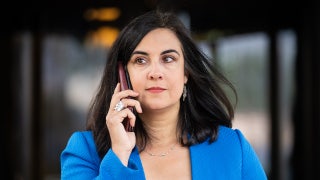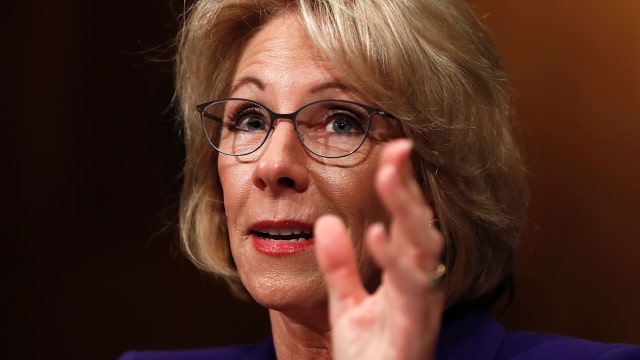DeVos opposition now claiming she'll ruin public schools
Strategy Room: David Mercer and Bradley Blakeman on Capitol Hill outrage over Trump's pick
The major charge against Betsy DeVos—and certainly the one that the writers at "Saturday Night Live" recently ran with—was that she doesn’t know enough about “school” to be Secretary of Education. She hasn’t been a teacher, a principal, or a superintendent. She doesn’t know how to pick a curriculum, evaluate an instructor, or write an Individual Education Plan for students with disabilities.
All true. And if she were seeking employment as a teacher, a principal, or a superintendent, that experience gap would be damning. But she’s not.
President Trump selected her to be the U.S. Secretary of Education. That person’s job is to do education politics and policy—to work with members of Congress and governors, to understand how a bill becomes a law, to provide moral support to reformers as they fight it out in the states and at the local level. With her decades of involvement in politics, with policy makers and in the trenches of the parental choice movement, DeVos is an inspired choice for the job that the Senate confirmed her for today.
Which isn’t to say the millions of teachers and parents who flooded social media and the Congressional switchboard to urge her rejection had nothing to worry about. Especially during the Bush 43 and Obama years, the Secretary of Education has occupied a powerful role, one that has sought to influence almost every nook and cranny of education policy and practice.
Particularly under Obama’s education secretaries, the feds did indeed stick their noses into curriculum, teacher evaluation, and the intricacies of serving students with disabilities, as well as who can use which restroom. Anyone assuming that the future would be a linear extension of that past might have reason to fret about DeVos.
Well, the big change that’s coming isn’t the change of individuals. It’s the change in the Education Department’s role. It’s not that DeVos and her team will play the Obama-era melody in a different key. It’s that they won’t being playing those tunes at all.
During her confirmation process, DeVos promised time and again to shrink Uncle Sam’s impact on the nation’s schools—to devolve decisions back to states, communities, educators and parents. That’s in keeping with the mandate from Congress, which just over a year ago updated the major K-12 law to expressly limit the federal role in education.
The grassroots energy around the DeVos confirmation fight demonstrates that Americans care deeply about their schools. That’s good news. The even better news is that parents and teachers can now focus that energy on changing policies closer to home, where the action is, rather than in Washington, D.C. And the U.S. Department of Education can go back to being the sleepy agency it was always meant to be.








































